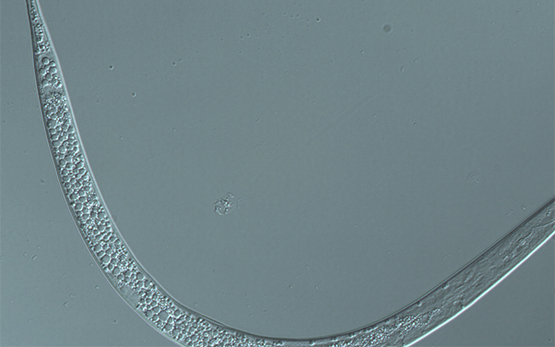Diagnostics
In close cooperation with the research group "Molecular Diagnostics and Epidemiology" at ACW, molecular diagnostics of plant parasitic nematodes and in particular quarantine species is a key research area for the us.
The use of barcodes, stretches of DNA that contain taxon-specific information, allows rapid and accurate species identification. As partner of the 7th framework programme project QBOL "Development of a new diagnostic tool using DNA barcoding to identify quarantine organisms in support of plant health" (www.QBOL.org), DNA barcoding protocols for all quarantine nematode species are under development. These protocols will be made available through the database Q-BANK, allowing identification of nematodes for national plant protection service personnel and other interested group.
The nematology team at ACW is one of the curators for the database to ensure that all data are validated and obtained from referenced material (www.q-bank.eu). Based on the obtained sequence data, new molecular diagnostic tools for detection and identification are under development.
Control Strategies
Due to the phase out or withdrawal of chemical nematicides, few options are left for farmers to control plant parasitic nematodes. As crop rotations often support high numbers of nematode populations due to their wide host range, plant resistance can play an important role in the integrated management of nematodes as is not only mitigates damage but also reduces reproduction, thus protecting also the following crop. However, constant evolution of existing nematode populations and the introduction of new species requires to search for new durable plant resistance for sustainable nematode control. The COST Action 872 "Exploiting genomics to understand plant-nematode interactions" deals with novel nematode control mechanisms and Switzerland is a member of the management committee of this action. (http://cost872.scri.ac.uk/)
Biological Control
A key research area of the nematology team at ACW is the biological control of plant parasitic nematode and in particular root-knot nematodes (Meloidogyne spp.) with antagonistic microorganisms. By investigating the tri-trophic interaction between antagonist, nematode and the host plant, the goal is to enhance the overall biological control efficacy. With the optimum application strategy, biocontrol can be a efficient control option for nematodes, especially for organic farmers.






